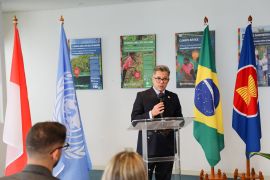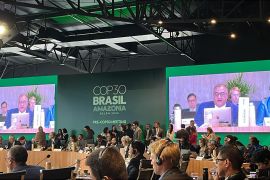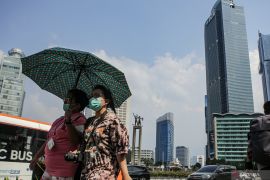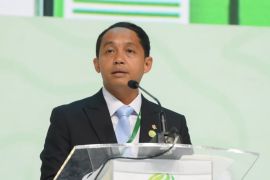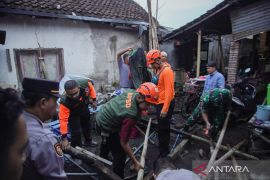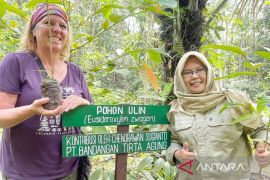"The recommendation among others urges each country to develop sustainable energy sources and promote the use of renewable energy such as solar, geothermal and wind energy," Gina Karina of Indonesia said when reading the recommendation.
The recommendation also urged every country to promote public awareness of environmental issues through mass media, education curricula and youth activities in support of environmental awareness, Gina said.
"The government of every country also needs to support community-based conservation projects, green technology and clean energy and give alternative income sources to the most vulnerable people because of climate change," she said.
Gina said each country needed to encourage development of conservation policies which take into account the needs of impoverished and marginalized people, she said.
Each country also needed to introduce an incentive-based tax scheme to companies to finance environmental and social projects as part of efforts to help affected and vulnerable people, she said.
She said each country was also expected to step up cooperation between government and private sectors in conserving forests by considering forest functions for the benefit of mankind`s welfare.
"This can be done by means of climate change mitigation and adaptation and legal framework which pays attention to customary community and local wisdom," she said.
Each country was also expected to promote exchange of know-how and experience about climate change mitigation and adaptation by developing institutional networks involving educational institutions, civil community organizations, mass media, private sector, government institutions and religious institutes.
In addition, the private sector was advised to produce more environmentally friendly products and invest in environmentally friendly programs aimed at reducing chemical, hazardous waste and greenhouse gas emissions, she said.
"Private companies should encourage the development of energy efficient products and promote green lifestyle among their employees by motivating them to reduce power consumption and use mass transport modes," she said.
The conference brought together 144 youths from 37 countries including Indonesia, Singapore, Malaysia, Brunei Darussalam, Timor Leste, Thailand, Cambodia, Madagascar, Zimbabwe, Seychelles, Finland, and Nigeria. (*)
Editor: Kunto Wibisono
Copyright © ANTARA 2011
